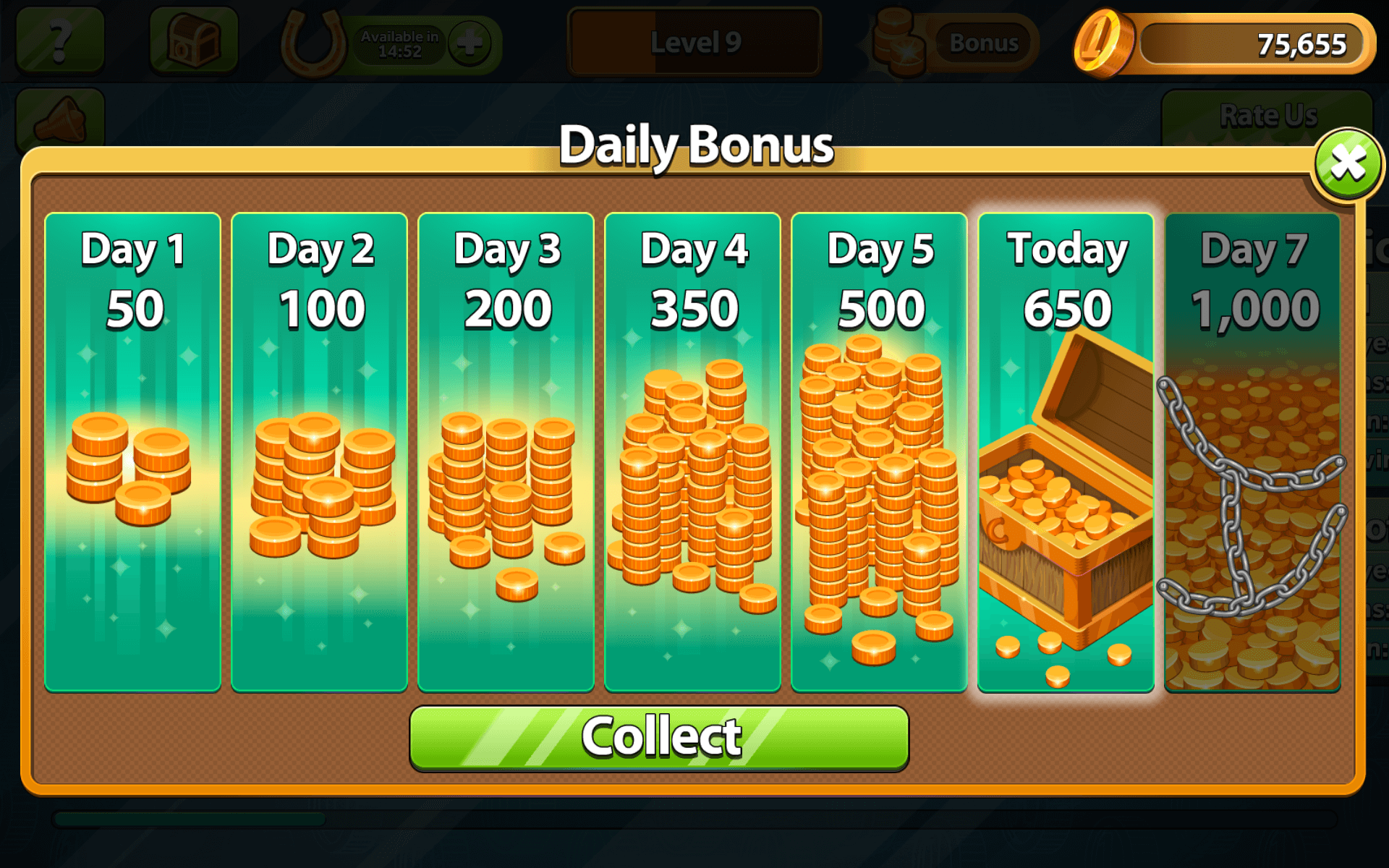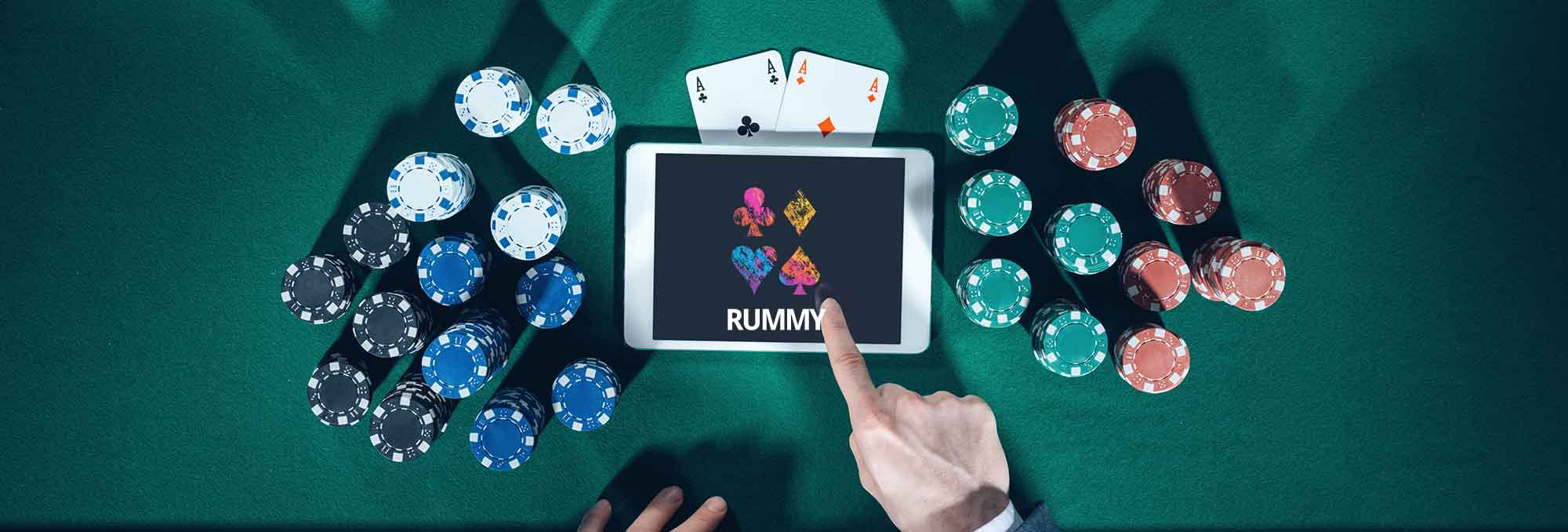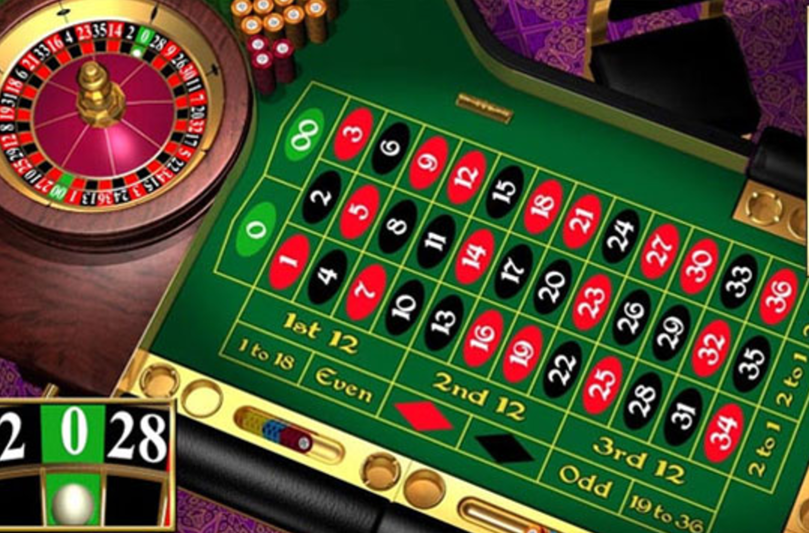Rummy Casino
Rummy is not a game which is commonly associated with online casino gaming. Even so, there are a few Indian online casinos which can offer rummy as a gambling game. If you are fortunate to find a place to play the game, you will still need to learn how to play it if you don’t already know. Rummy may not be one of the most popular casino games out there, but it guarantees fun even with its simple gameplay. Play a round or more of rummy with crypto in your chosen Bitcoin casino so that you can have fun in the most convenient way possible.

Rummy Rules
Rummy is a classic cardgame where the objective is to be the first to get rid of all your cards, by creating melds, which can either be sets, three or four cards of the same rank, e.g. H8 S8 D8, or runs, which are three or more cards of the same suit in a sequence, e.g. H1 H2 H3. Aces are low, and sequences can not wrap around. There are many, many variations of Rummy that exist, this particular implementation is Basic Rummy, or Traditional Rummy.
Gameplay
The game can have 2,3 or 4 players. If there are only two players they each get 10 cards, if there are three or four player then each player gets 7 cards. After the cards are dealt the deck is put facedown on the table, and one card face up next to it, to start the discard pile. The player to the left of the dealer starts the hand, and gameplay goes as follows:

- Start your turn by drawing card from either the deck or the discard pile.
- If possible, lay down a meld on the table. You are allowed to put down many melds in each round (in some versions only one meld per turn is allowed).
- Lay off cards on existing melds. For example if there's H5 H6 H7 on the table, and you have the H8 you may lay it off on the meld. Who put the meld down in the first place doesn't matter, as soon as a meld is on the table it doesn't belong to anyone anymore, anyone can use it. You are allowed to lay off as many cards as you want, and you may always lay off, also when you haven't put down a meld in the round.
- End your turn by discarding one card onto the discard pile. If you drew from the discard pile you can not discard that card in the same round. If you only have one card left to discard you put it face down on the discard pile and win the game.
The game continues like this until one player has finished all the cards from their hand. A player is not required to end the game by discarding a card onto the discard pile, if he can lay down all his cards in melds, or lay them off on existing melds the may do so, and will win the game.
If the deck is depleted before a player has won, then the discard pile is shuffled and used as a new deck. If the deck is depleted for a second time then the hand is considered a stalemate and finishes with no one getting any points.
Scoring

The scoring in Rummy is winner-takes-all. When a player has won a round, the cards his opponents still have in their hands are counted and the winner gets points based on them. Face cards are worth 10 points each, aces are 1 point, and other cards are worth their rank, e.g. an 8 is worth 8 points. The points for all the losers are added together and given to the winner. (In some variations each player gets his points as penalty points, but not in this version). The score needed to win the entire game varies based on how many players there are. For 2 players the score is 100 points, for 3 players it's 150 points and for four players the score is 200. When a player reaches the target score he has won the entire game. Since scoring is based on cards left in hand it makes sense to try to meld and lay off as early as possible.
Going Rummy (Rummy bonus)
If a player has not melded or laid off any cards during the game, but can get rid of all his cards in one turn earns a bonus, his points are doubled! This is called Going Rummy, and is a risky move, since you have a lot of cards for a long time, but can really pay off if you manage to do it successfully!
Stalemate

There are two cases where the game can end in a stalemate. One, as mentioned above, is when the stock has been depleted twice. The other is when the game detects that none of the players will be able to finish their hands. This can for example happen when all players have only one card left, and there are no possible lay offs on the melds on the table. When there's a stalemate all players get 0 points, and the game is considered a loss for all of them in the statistics. The way people handle this in real life varies greatly, but I've chosen this simple method here to avoid complications around two or more players having the same number of points etc.
On This Page
Introduction
Rummy is a popular blackjack variant found in Costa Rica. Most Costa Rican casinos don't offer blackjack at all, claiming it is illegal. So, if you like 21-based games, and depending on which casino you're in, you may be stuck playing Rummy.
Rules
These are what I'm calling the 'benchmark rules' for Rummy, which most casinos follow. Some casinos adopt stingier rules; for those instances, see the rule variations section below.

- Four to six decks.
- An ace and 10-point card count as 21 points. Thus, there is no 3-2 bonus for a winning 'blackjack,' because there are no blackjacks.
- Dealer stands on soft 17.
- Double any two cards.
- Early surrender.
- Double after split allowed.
- Re-split any pair, including aces, up to four hands.
- Draw to split aces not allowed.
- The following bonuses for a three of a kind and straight flush apply to the first three cards of the original hand only.
Rummy Bonuses
Player hand Unsuited Suited Total 21 Three of a kind 3 to 1 5 to 1 5 to 1 Straight flush n/a 3 to 1 5 to 1 - Bonuses pay immediately, even if the third card causes the player to bust.
- If the player gets a bonus after doubling, then the bonuses apply to the total amount bet.
- Splitting voids any chance of a bonus.
Strategy
The following table shows the basic strategy, assuming the rules above. Please note the bonus exceptions for two suited player cards to the right of the table.
House Edge
Assuming the benchmark rules and basic strategy above, the house edge is 1.00%.
Rule variants
The following table shows some rule variants you may see and the effect on the house edge.
Rule Variants
Rummy Chart
| Rule | Effect |
|---|---|
| Draw to split aces | -0.17% |
| 4 Decks | +0.02% |
| No re-splitting aces | +0.06% |
| Dealer hits soft 17 | +0.16% |
| No surrender | +0.47% |
Rummy Soda
It is interesting to note that the house edge goes up as the number of decks goes down. I assume because it becomes harder for the player to make three of a kind bonuses.
Acknowledgments
I would like to thank Cindy Liu and CrystalMath for their assistance in this analysis.